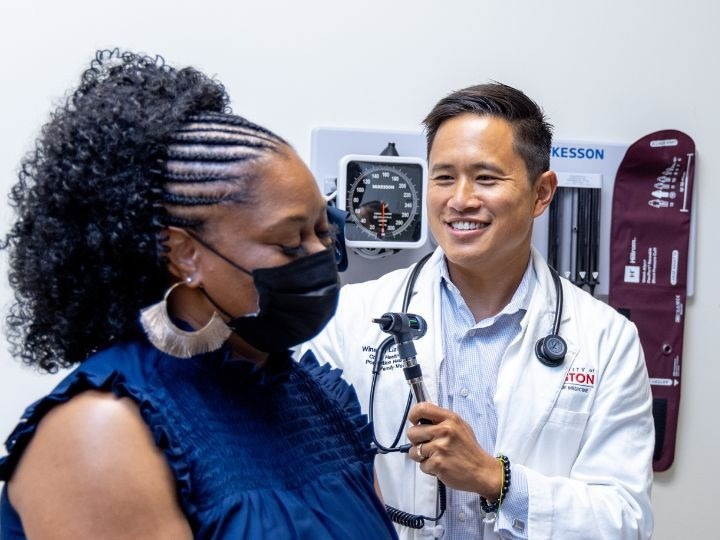Diabetes affects more than 37 million individuals in the United States, but many do not obtain early treatment, which can result in costly and even fatal consequences. Though effective interventions are available in primary care settings, practitioners lack the skills to identify the most vulnerable patients.

Dr. Winston Liaw is the principal investigator of the project and chair of the Department of Health Systems and Population Health Sciences at the Tilman J. Fertitta Family College of Medicine. Image Credit: University of Houston.
Scientists from the University of Houston are working on Primary Care Forecast, a clinical decision support system that employs deep learning to forecast which patients are most likely to encounter difficulties.
The Diabetes Complication Severity Index (DCSI) Progression Tool is the first tool that was developed within the inventive AI system, and it considers how a patient’s social and environmental circumstances—living arrangement, employment status, food security, education level—may boost their risk for complications in addition to their health history. According to research, several societal factors can influence disease progression.
The tool, financed by the American Board of Family Medicine, will offer practitioners immediate, actionable insights, allowing them to intervene earlier, reduce the percentage of diabetes patients who have problems, and reduce the number of issues impacting each patient.
Our long-term goal is to help clinicians become more proactive and less reactive when treating diabetes. By leveraging the capabilities of artificial intelligence and machine learning, we can more effectively connect at-risk individuals with interventions before they become sicker.
Dr Winston Liaw, Chair, Department of Health Systems and Population Health Sciences, Tilman J. Fertitta Family College of Medicine
Dr. Winston Liaw was the principal investigator of the project.
Insurance firms and researchers have utilized the DCSI for years to evaluate patients’ complications at a single point in time. However, no tools exist to forecast which individuals are most vulnerable to growing DCSI levels.
The tool will be created with the Humana Integrated Health System Sciences Institute at the University of Houston and will use proprietary Humana Inc. data sets, including health records, claims, and individual and community social risk factors. The tool will be evaluated within the PRIME Registry, a national platform with millions of primary care patients across the country.
The challenge with existing prediction tools is they provide little explanation and no guidance for subsequent action, limiting trust and implementation. The tool we are developing will inform clinicians why patients are at risk and suggest actions to reduce that risk.
Ioannis Kakadiaris, Hugh Roy and Lillie Cranz Cullen University Professor, Computer Science and Health Systems and Population Health Sciences, University of Houston
Dr. Todd Prewitt, corporate medical director, clinical strategy and analytics at Humana adds, “Humana is excited to collaborate with our partners at the University of Houston leveraging their AI and predictive analytic expertise with our extensive diabetes experience using the DCSI and health impactful social determinant solutions. This tool represents a great opportunity to put actionable information into the hands of primary care physicians at the point of service where real change in health happen.”
The tool, according to scientists, may be used to forecast consequences related to illnesses other than diabetes, like uncontrolled hypertension or deepening depression. The technology will be especially useful as the healthcare industry transitions to a value-based care model, where physicians are compensated for improving patients' health rather than for each visit, procedure, or test, regardless of the results.
Primary care education and research are prioritized by the Fertitta Family College of Medicine, established in 2019 with the social mission of enhancing health and medical care in underserved urban and rural communities across Texas.
As primary care doctors, we need an efficient way to leverage the massive amounts of information we receive to improve the quality of life of our patients. The number of complications a patient experiences is strongly associated with death or hospitalization, so developing this AI tool is critical.
Dr Winston Liaw, Chair, Department of Health Systems and Population Health Sciences, Tilman J. Fertitta Family College of Medicine